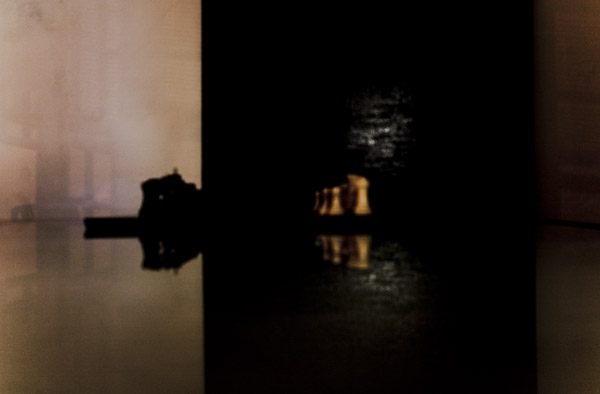
“Chess” (Photo by Blake Bertuccelli)
NolaVie intends to publish weekly creative writing from writers living in New Orleans. By spotlighting creative writing content, NolaVie hopes to expose a wide audience to the full spectrum of content coming from New Orleans. This week, we present two poems by Vladmir Nabokov — most famously known for his book “Lolita” — translated for the first time from Russian by Tulane University student Erik Vande Stouwe.
Erik explains his work: “I often wonder what qualities of loyalty and betrayal the translator brings to his encounter with the text. I hope that these translations can be experiments insofar as they reveal – with varying degrees of accuracy limited by my knowledge – which aspects of [poetic] lines float and which sink when transplanted to the English language. I hope that where lines succeed they are treated with the curious grin of one who witnesses some foreign vegetation growing in his native soil, and where they fail the first blame is placed on the gardener and the climate.”
This is a translation of a 1924 series of poems by Vladimir Nabokov titled “Three Chess Sonnets.”
I
In moving the rook – an iambic meter,
in moving the bishop – an anapest.
Half-dance, half-deliberation. From the café’s
boozy din, from the sulfur-smoke air.
Here, Phillidor contended, and Ducer.
Now, sits a thick-browed, angry Spaniard and
a bespectacled gnome. On the tendons of his hands
lies a strange gloss, his glance – a chimera’s.
With iambic feet the rook steps forward.
Then again there is thinking. “Caramba,
give it up!” But the quiet gnome lingers.
And here the feet knock against a florid,
iodic figure – as it were, the sacrificial bishop.
In black’s move the bewitching check and mate.
—
II
There are thrashing rhymes and dancers with wings
within such puzzling schemes. Observe:
across the bright and dark squares,
white has seven pieces, black has only three.
Humpbacked horses flank the black queen,
and the pawn, like amber, sparkles in night.
Kings, as servants, await the decision,
in fretted crowns and carved cuirasses.
The star-shaped intrigues of the queen,
the titillating patterned path,
leads away thought – anew, into obscurity.
But fairy rhyme manifests itself
on the board, shimmering in lacquer,
and – ethereal – soars into a whorl.
—
III
I do not write by the sonnet’s law;no nightingales sing in the poplars,
but, adjusting here a pawn, here a rook,
meditate upon the problem ’til dawn.
And I locked down her defense
the entire night, all of her cries,
and dark the branches, and bright the arcs
of flowing stars, and poetry’s workmanship…
I think, my Spaniard, and gnome,
and Phillidor, that in the lacelike design,
spare of pieces, ordered in consonance –
everything is seen, the gliding moonlight,
that I love ecstatically and clearly,
that on the board composed this sonnet.
—
 New Orleans Startups
A brief overview of the growing New Orleans startup scene. This piece highlights the main industries of New Orleans, competing cities, and just how emerging the current entrepreneurial/startup scene is in New Orleans.
New Orleans Startups
A brief overview of the growing New Orleans startup scene. This piece highlights the main industries of New Orleans, competing cities, and just how emerging the current entrepreneurial/startup scene is in New Orleans.
 A Bin in Every Classroom: Why Tulane Should Lead on Composting
I asked a peer, Isabel, for her thoughts on composting: “Why do...
Tulane
A Bin in Every Classroom: Why Tulane Should Lead on Composting
I asked a peer, Isabel, for her thoughts on composting: “Why do...
Tulane